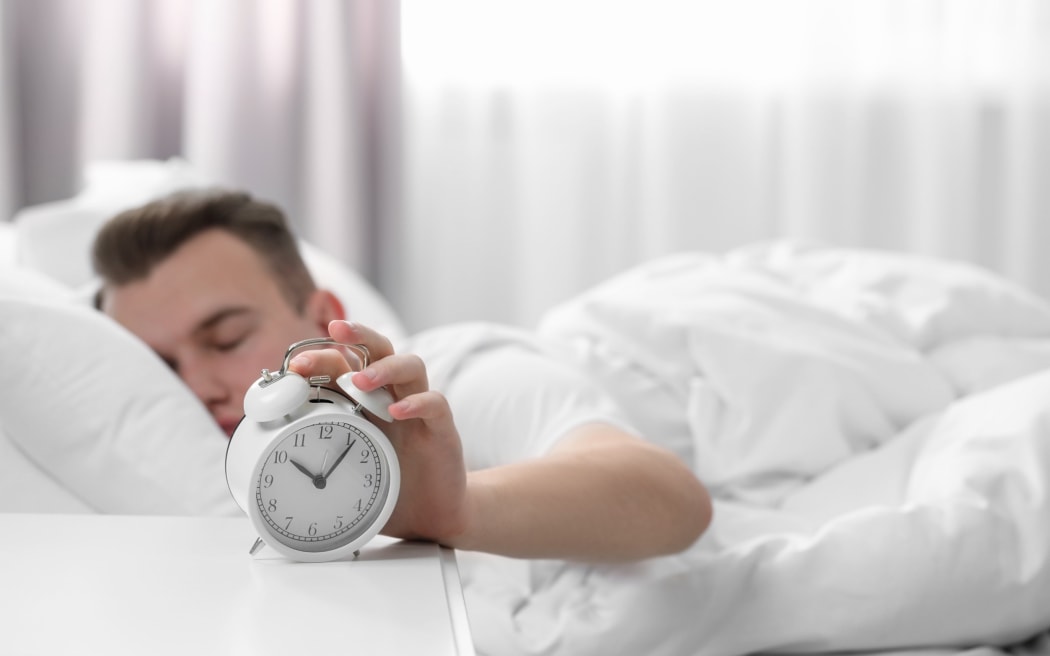
Photo: 123RF
We spend a third of our lives sleeping and yet so many of us have trouble with it.
So when we hear about new theories on how we might improve our sleep, it's not surprising that people want to try them out. This week on Healthy or Hoax, Stacey Morrison finds out whether sleep syncing using the latest apps and technology could improve our wellbeing and whether taping your mouth shut will help with the biggest barrier to a good night's sleep - snoring.
Follow Healthy or Hoax on Apple Podcasts, Spotify, iHeart or wherever you get your podcasts
What is sleep syncing?
Professor Leigh Signal from the Sleep/Wake Research Centre at Massey University is an expert in fatigue management and sleep health. She says sleep syncing is really just about understanding that you've got a circadian biological clock and then aligning your sleep pattern or your sleep schedule with that clock.
While the term "sleep syncing" may be new to some, sleep scientists have been trying to spread this kind of message for years.
"The crux of it is spot-on scientifically," Signal says.
"There are some slightly off base messages happening as well, though, so I think it's good to explore it a little bit more."

Professor Leigh Signal Photo: supplied
Signal says the human body's amazing circadian biological clock helps to keep us in step with the day/night cycle.
While we are all hardwired to sleep at night and stay awake during the day, that doesn't mean all our clocks are ticking away in time.
"I am slightly more an evening type person, so I like to go to bed a little later," Signal says.
"Most of us are, somewhere kind of in the middle, although there are a few people out there that are extreme morning or evening types."
How do you sync your sleep?
Essentially, it's about having a regular bedtime and a regular waking time.
"In an ideal world, perhaps, so we should be going to bed when we feel sleepy, and we should be waking up, when we naturally wake," Signal says.
"But many of us also have jobs that don't allow us to do that. And then we have teens, for example, who just biologically, their circadian system has shifted during puberty so that they can't go to sleep until later, and then they want to wake up later. But that's not how the school system currently works."
Generally speaking, we tend to sync our sleep with our work/life schedules rather than our circadian rhythms.
Can technology help?
There are plenty of apps and gadgets, from Fitbits to Ōura rings, which help us set and maintain good sleep cycles and track our sleep patterns. But do they really help?
"They can tell you some useful information about when you're going to bed, when you're getting up," Signal says.
"[But] they are not well designed to tell you about that structure or what we call the 'architecture' of sleep."
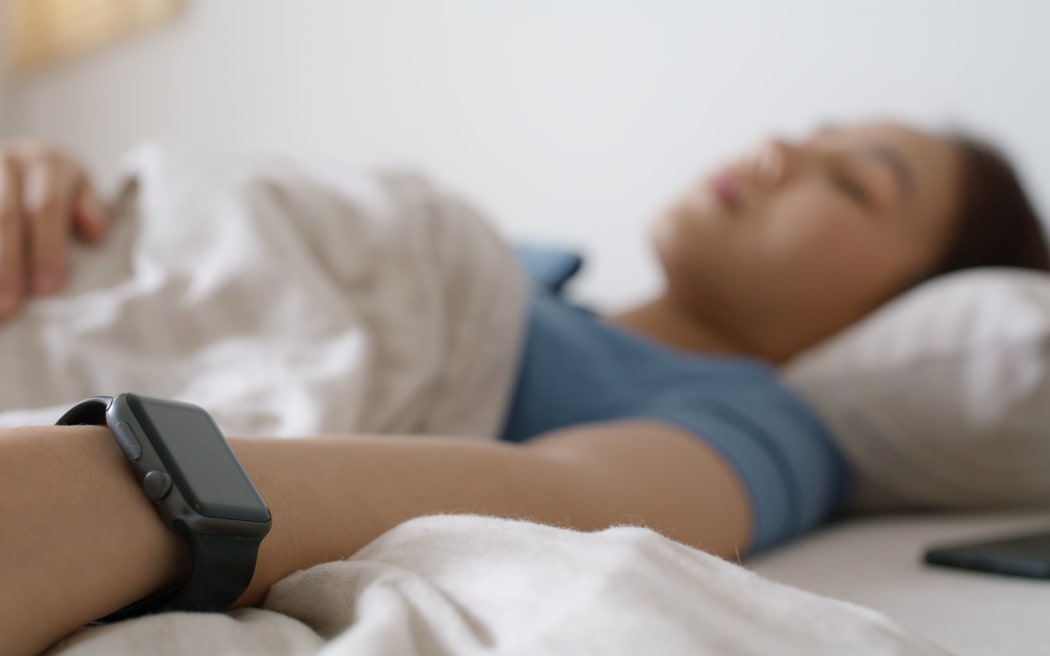
Can the latest technology help us get a better night's sleep Photo: 123rf
Signal describes sleep as a beautiful and complicated structure. She says there are two main types of sleep: rapid eye movement (REM) sleep and non-REM sleep. And then within non-REM sleep we have light and deep sleep.
"So tonight, when you fall asleep, you'll enter light non-REM sleep first, then move into deeper non-REM sleep for a period of time, and then your brain will bump you up into the lighter stages of sleep again. And then you'll have your first episode of dreaming sleep, or REM sleep for the night. And you cycle through those different stages of sleep repeatedly throughout the night. And we call that patterning, the architecture of sleep."
She says ensuring you have that beautiful patterning is what makes sleep good quality.
Limitations to sleep technology
It's important to realise that your Fitbit is not going to tell you good quality information about the architecture of your sleep, Signal says.
"I think the important thing is not to get too hooked up with the information that those technologies are telling us.
"Sleep doesn't have to be perfect every single night for us to remain healthy and well, we just want to make sure that we understand the importance of it so that we don't end up binge watching Netflix to 3am."
What about snoring?
One of the most annoying barriers to a good night's sleep is snoring, whether it is you doing the snoring or a partner.
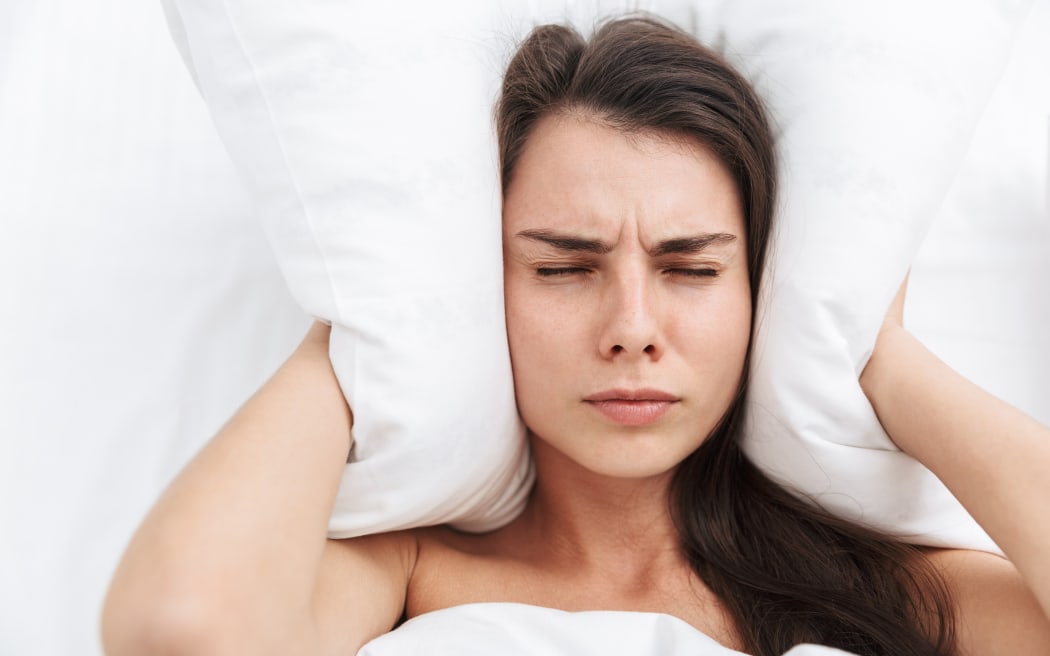
Snoring is a huge barrier to a good night's sleep. Photo: 123rf
Could the solution be as simple as taping the snorer's mouth shut?
Richard Garton discovered mouth taping on YouTube, where some journalists and doctors were recommending it.
"Well, I think the theory was that you're meant to use your nostrils and nose to breathe. And what that does is it filters the air and warms the air that goes into your lungs," he says.
"It oxygenates your blood. They said something like 30 percent more than you would normally by breathing through your mouth. So I figured that would be a good thing. And tried it."
Mouth taping is pretty much what you would expect. Garton describes it as taking a small strip of tape and putting it over the center of your mouth and lips, from just under your nose to the middle of your chin.
"You don't have to cover your whole mouth, and it's hard to do for the first few nights because it feels like you're not breathing properly. But after a while, you kind of get used to it," he says.
Does mouth taping work?
Garton says he felt there was some value in it and considered doing it again if he was training for a marathon or something. But he didn't keep the practice up for long.
"I ran out of tape. I kind of got sick of doing it. It's something you have to constantly do, and I just got bored with it."
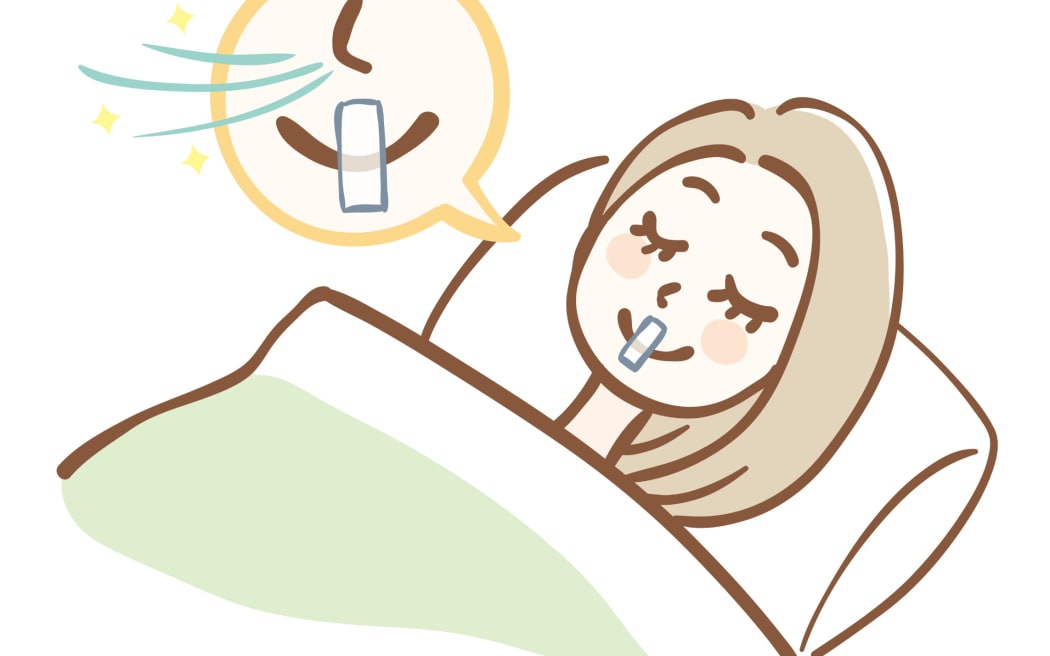
Illustration of woman sleeping with tape on her mouth Photo: 123RF
Angela Campbell is an associate professor at Well Sleep, which is based in the department of medicine at Otago University. Campbell runs the local clinical sleep laboratory in Wellington. She's sceptical about the benefits of mouth taping.
"There isn't any really good evidence that it helps with snoring," she says.
"Most of the data seems to show that it just changes the sound. It might be just a little bit more muffled, which might be a little bit helpful, particularly for the bed partner, but is probably not really addressing the issue and why snoring is occurring in the first place."
Campbell says snoring is a sign that the back of the throat or the upper airway isn't as open as it should be.
She agrees that breathing through our noses has lots of good things to recommend it.
"We want the air coming into our lungs to have particles of dust and things removed. And the little hairs inside the nose help with that. It also helps add moisture to the air again, which makes it easier for the lungs."
However, Campbell says taping your mouth may actually result in making it harder to breathe if you don't have a good open nasal airway.
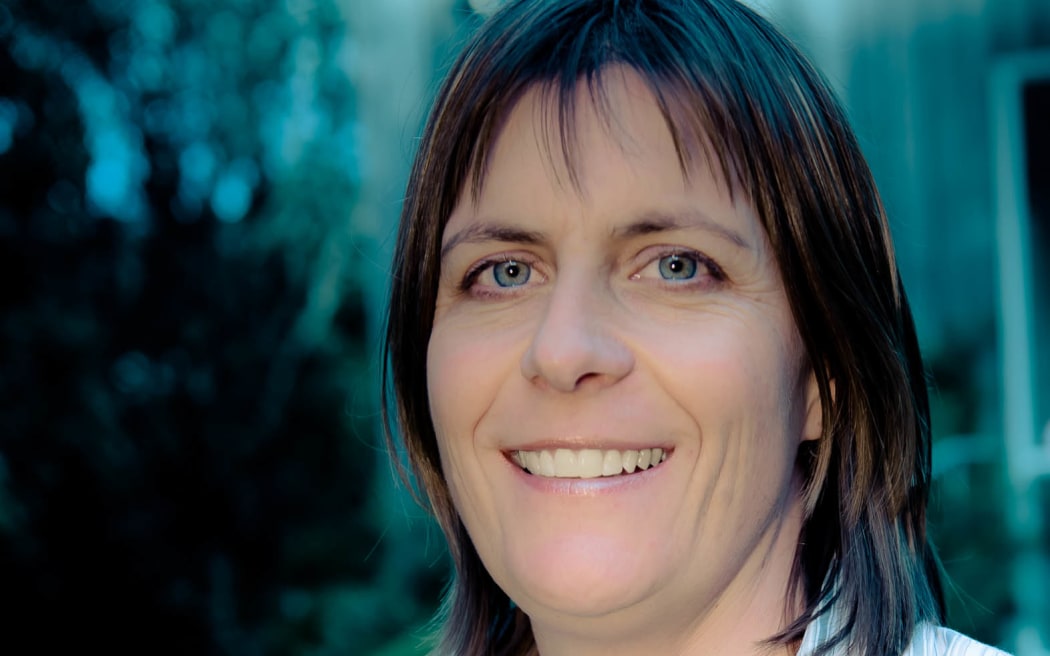
Associate Professor Angela Campbell Photo: SUPPLIED
Healthy or a Hoax?
Signal says sleep syncing - recognising you have a biological clock driving when you to do things during the day, acknowledging that and using it to get better quality sleep - is "a great idea".
But Campbell is less certain about mouth taping. While some elements make sense, such as the benefits of breathing through the nose, people aren't always very good at following exact instructions and there are no guidelines on how you tape your mouth.
"The last thing we want to see is somebody who actually really can't breathe through their nose for physical reasons, grabbing a piece of duct tape and putting it over their mouth," Campbell says.
"I mean, it's very hard to actually say that this is a good thing with no guidelines and in who we should be recommending it. So I think that really the answer is don't do it."
But she has other tips to help reduce snoring.
"Things like sleeping on your side rather than your back, using the little strips that go across the bridge of your nose. They decrease airway resistance, make it easier for the air to get into your airway. Maybe if you've got a stuffy nose, getting a spray, from your chemist, thinking about whether you're having alcohol in the evening, and maybe reducing that. If you've got a little bit of extra weight, seeing if you can drop that. And I know that that's not an easy thing to do."
Campbell also suggests a regular sleep timing - a well-syncing sleep - is really helpful with snoring.

